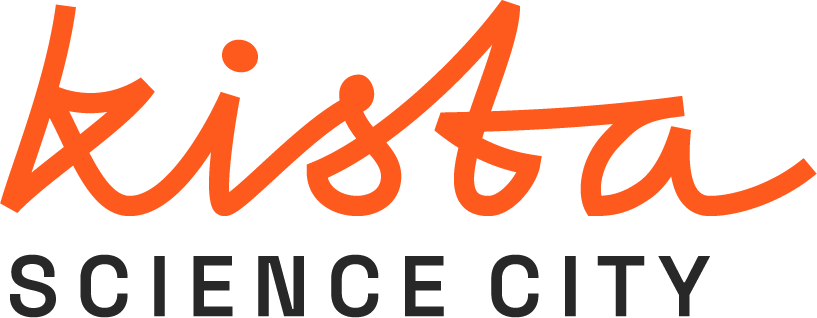New partners Flasheye and Bosch joins testbed for smart traffic systems
Flasheye and Bosch join Kista’s smart traffic systems testbed. These collaborations aim to enhance urban traffic management and safety by leveraging cutting-edge AI and 3D LiDAR technologies. Together with other testbed partners, these companies will help advance the development of intelligent solutions and progress toward smarter and safer cities.
The testbed
The smart traffic systems testbed offers a unique environment for evaluating and advancing innovative traffic management solutions. Here, companies of various sizes, from all across Sweden and beyond, can test and refine their technologies in a real-world urban environment. The site is fully equipped with essential power and high-speed communication infrastructure, ensuring smooth operations and fostering collaboration among various stakeholders, including the City of Stockholm. It also has a structured process and framework to ensure compliance with data privacy regulations when deploying and testing multi-sensor equipment within the designated urban area.
Flasheye
Flasheye is on a mission to make cities safer with their project, “3D Detection for Safer Cities and Roads.” Utilizing advanced 3D LiDAR technology, they gather real-time data from urban traffic environments. Their high-resolution sensors create a digital representation of the environment, focusing on shapes and movements while safeguarding privacy by only capturing silhouettes and shapes.
“By monitoring traffic flow, identifying objects like slow or stationary vehicles, speeding cars, pedestrians, and cyclists, we can collect valuable data on size, speed, and more,” says Ida Rehnström, Deputy CEO at Flasheye. “This data is crucial for developing solutions that prevent accidents and optimize traffic management in urban environments. By participating in the testbed, we hope to gain valuable experience and contribute to creating a certified solution for smart cities.”
Bosch
Bosch brings their state-of-the-art AI-camera technology to the testbed, offering real-time detection of vehicles and pedestrians. Their edge-based system processes data on-site, reducing reliance on cloud infrastructure and enhancing data privacy. With a focus on real-world conditions, Bosch aims to refine their algorithms for optimal performance. Their proactive engagement with regulatory bodies like The Swedish authority for privacy protection (IMY) ensures their solutions meet the highest privacy standards.
“The testbed provides a unique environment for collaboration,” says Anders Karlsson, PMM, CCTV at Bosch Security Systems. “By working alongside other leading companies, we can establish strategic partnerships, expand our industry network, and ultimately drive progress in integrating our technology seamlessly into existing urban infrastructure. We have already established several short-term collaborations within the testbed”
The future
Looking ahead, Flasheye’s and Bosch’s systems will help enhance urban management, setting new benchmarks for safety and efficiency. As these technologies evolve and integrate, they will contribute to a more responsive and adaptive city infrastructure, ultimately improving the quality of life for residents and supporting sustainable urban growth. Moreover, the collaboration between Flasheye, Bosch, and other partners in the testbed creates a strong ecosystem of knowledge and technologies.
Curious about our smart traffic systems testbed and how you can get involved? Reach out to explore partnership opportunities, discuss your goals, and learn how our testbed can help you achieve them. Contact Lucas Uhlen.
Insights from our cybersecurity course
SMEs and digital threats
In today’s digital age, cyber threats are a constant concern for businesses of all sizes. However, small and medium-sized enterprises (SMEs) can be particularly vulnerable. A recent report by the European DIGITAL SME Alliance found a 57% increase in cyberattacks across Europe, with many targeting smaller firms that may lack both advanced security measures and expertise.
This is where the recently concluded “Basic Cybersecurity” course aimed to make a difference. Offered as part of Sweden Secure Tech Hub, the course empowered participants with the knowledge and skills to navigate the evolving cybersecurity landscape. Throughout the spring, attendees gained a comprehensive understanding of core concepts through workshops, self-study modules, and practical exercises. This included threat identification, security measures, and risk management strategies, helping participants to develop effective defenses for their businesses.
The Cybersecurity course was led by deputy professor of Linköping University, Mikael Asplund, and Sakarias Strand of Kista Science City. Sakarias reflected on the course’s impact and the enthusiasm he saw among participants.
“Participants showed a great eagerness to learn and engaged actively in discussions and exercises. Many of them, who did not primarily work with cybersecurity, were able to connect theoretical knowledge to real-world situations. This demonstrates the vital role of cybersecurity training for SMEs, as it links awareness and practice. As cyber risks continue to grow, educational initiatives like this one will be increasingly important in building resilient and secure business environments.”

Reflections from participants
Sadhana Pettersson, Sales Manager at Bouvet, and Jennyca Imner Nicolau, Business support specialist at Abbott Medical are two of the participants. We spoke to them about their experiences and insights gained during the spring.
What motivated you to participate?
Sadhana: “In the IT sector, there’s often a general lack of cybersecurity awareness. When working with clients in consulting services, it can be challenging to navigate situations where the understanding level is lower. This course seemed like a perfect opportunity to bridge that gap.”
Jennyca: “I wanted more insight into cybersecurity in general, but also saw an opportunity to meet others and hear about their needs and challenges. The fact that the course included in-person sessions and offered university credits made it particularly appealing to me.”
How did the course impact your understanding of cybersecurity?
Sadhana: “I think that it provided a deeper understanding of cybersecurity’s complexity. It opened my eyes to how it’s not just an IT issue, but a business concern as well.”
Jennyca: “The course provided tools to identify weak links in process chains, which I can apply in upcoming projects. I now realize that everyone has a responsibility to protect their organization from cyberattacks.”
Was there a particular activity or discussion that stood out to you?
Sadhana: “The threat modeling exercise was very engaging. Although it was a new concept for me, it was incredibly valuable. Learning how threat modeling can be combined with risk analysis provided a powerful tool that I can definitely utilize in the future.”
Jennyca: “The small group discussions were particularly interesting to me. Hearing about other people’s experiences added a lot of value beyond the lectures. Also, reviewing materials before the lectures made the sessions smoother, allowing us to quickly dive into these group discussions. Sakarias was an excellent moderator, guiding discussions in an inclusive and easy-going manner, which was crucial given the varied levels of knowledge among participants.”
Sweden Secure Tech
Sweden Secure Tech Hub is a national collaboration between six of Sweden’s leading science parks focused on enhancing cybersecurity for small and medium-sized enterprises (SMEs). The hub provides a variety of resources, including educational courses and support for developing secure digital products. By participating in the hub’s programs, businesses can access the latest cybersecurity knowledge and tools, helping them to protect their digital assets and comply with international standards.
For more information and to sign up for upcoming courses, reach out to sakarias.strand@kista.com.


